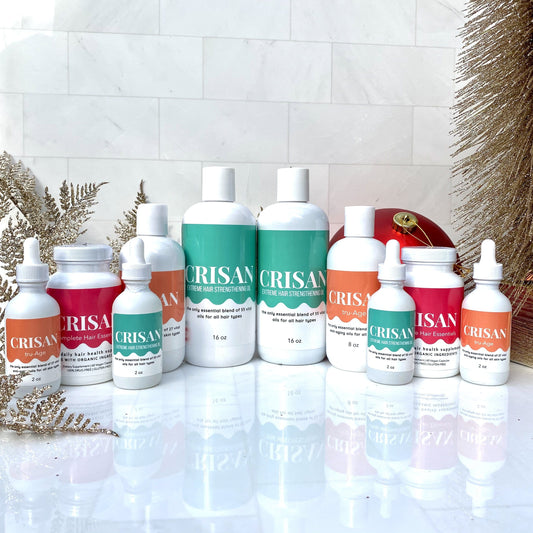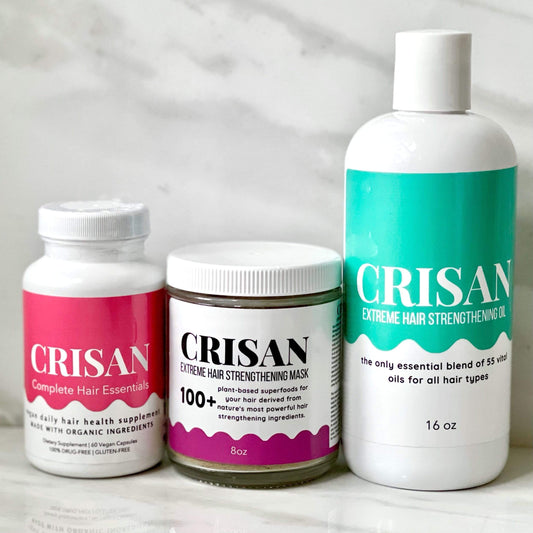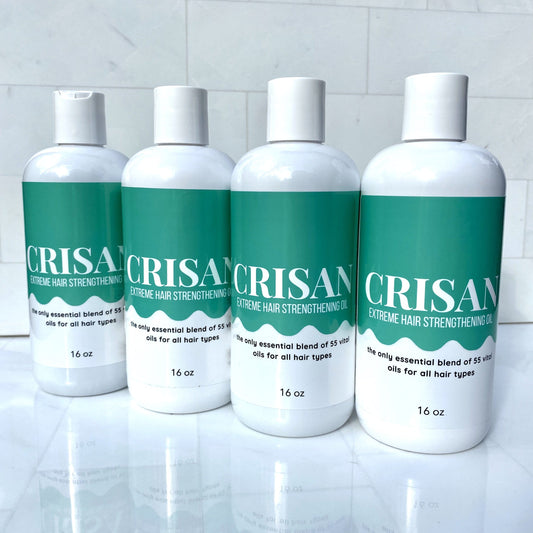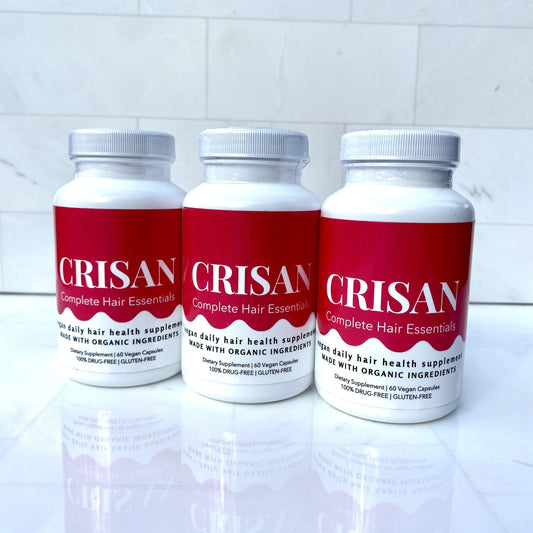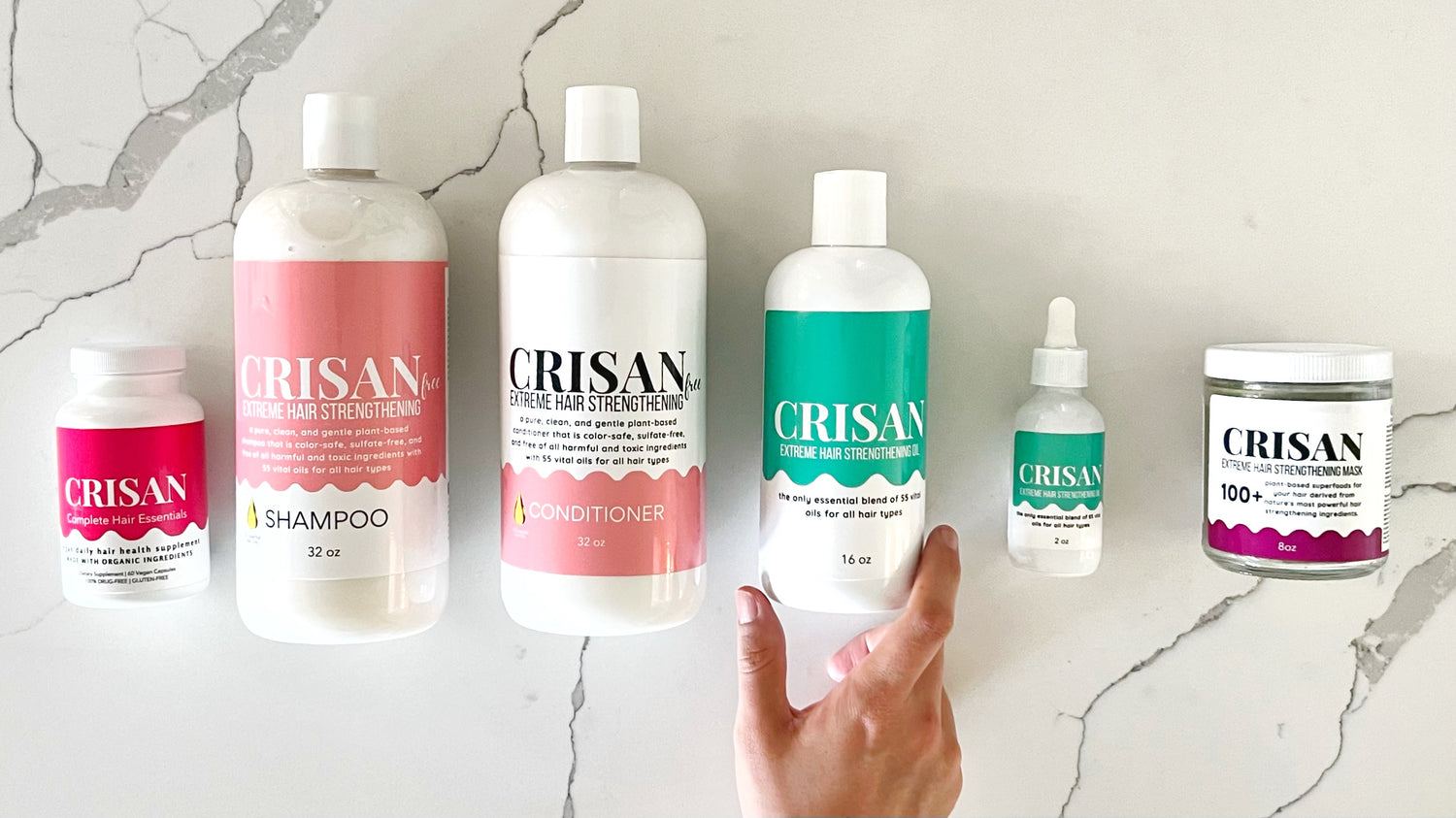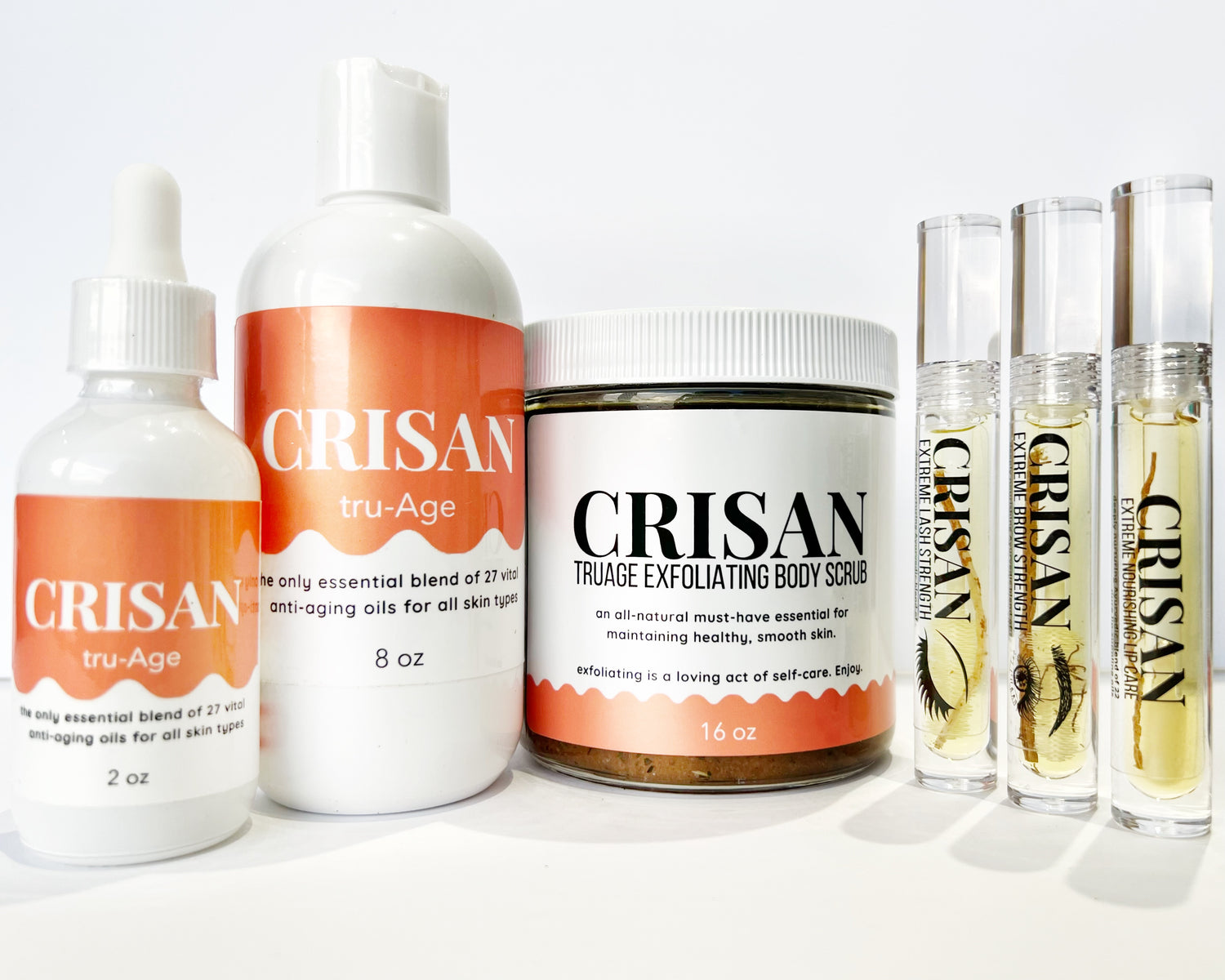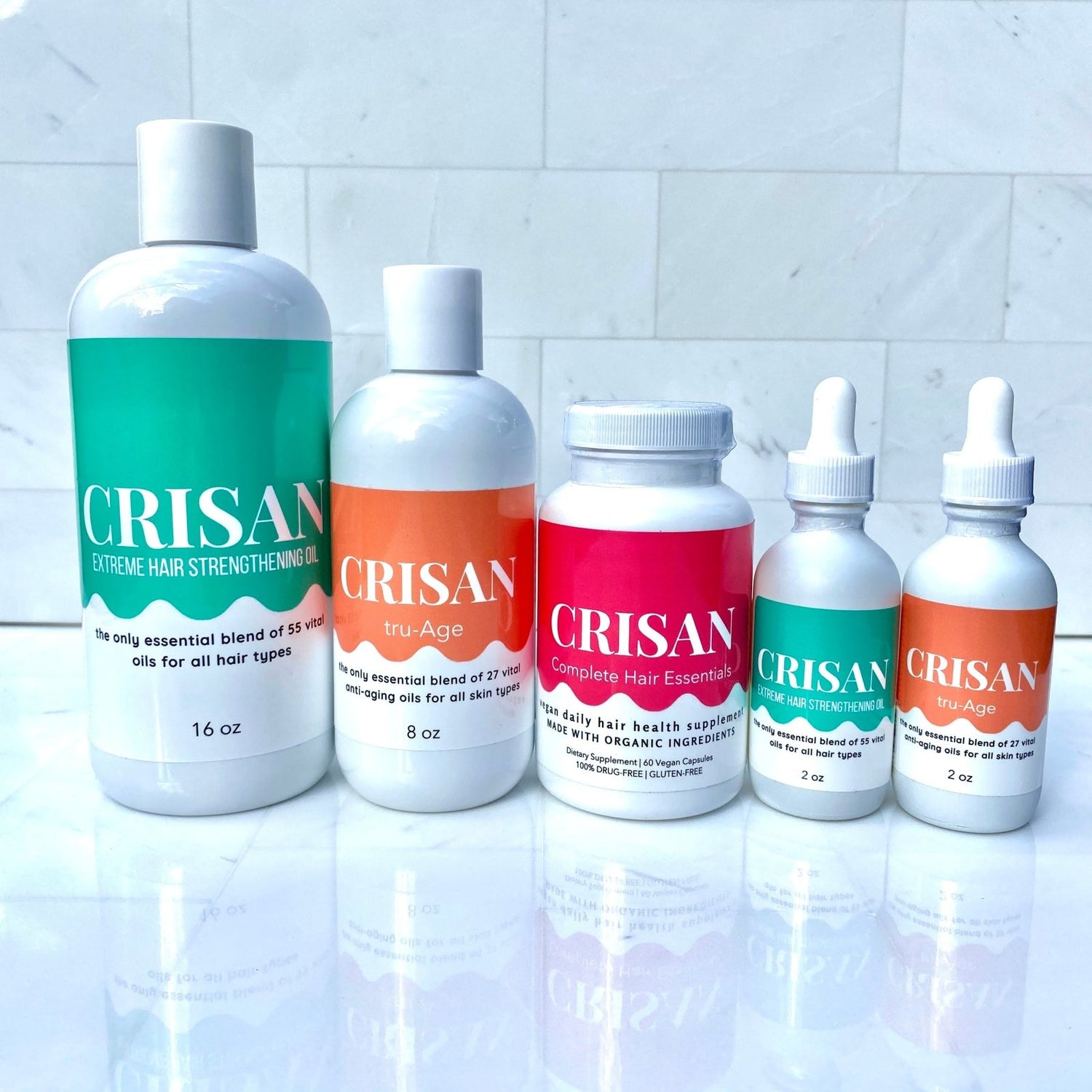Are you dreaming of longer, thicker hair? While there's no magic potion for overnight hair growth, there are several homemade recipes that can help speed up the process naturally. Using ingredients like essential oils, herbs, and carrier oils, you can create effective hair growth treatments right in your kitchen. Below, we've compiled the top homemade hair growth recipes you can try at home.
Key Takeaways
- DIY Hair Growth Oil combines essential oils and herbs for an effective natural treatment.
- Castor Oil and Peppermint Essential Oil are powerful ingredients known for promoting hair growth.
- Rosemary Essential Oil is another essential oil that can boost hair growth and improve scalp health.
- Herbal Infused Oil can be made using various herbs and carrier oils to nourish the scalp and promote growth.
- Vinegar Hair Rinse helps balance the pH of your scalp, which can improve hair health and growth.
1. DIY Hair Growth Oil
- 🥣 How to make hair growth oil
- 🥣 How to make hair oil with essential oils
- 🌱 How to use homemade hair growth oil
47g herbal infused oil (instructions below)
47g castor oil
3.5ml / 3g peppermint essential oil
3.5ml / 3g rosemary essential oil
HERBAL INFUSED OIL
1 cup / 200g carrier oil, such as MCT oil, olive oil or avocado oil
~3/4 cup dry herbs, such as rosemary, willow bark, peppermint, and green tea
5ml / 1 tsp / 4g vitamin E oil
HOW TO MAKE HAIR GROWTH OIL
Active Time: 15 minutes
Additional Time: 12 hours
Total Time: 12 hours 15 minutes
Make this DIY hair growth oil recipe to grow longer, thicker, more luscious hair fast! This natural homemade hair growth recipe is
infused with castor oil, herbs, and the best essential oils for hair growth and thickness.
MATERIALS
DIY HAIR GROWTH OIL RECIPE
- 47g herbal infused oil (instructions below)
- 47g castor oil
- 3.5ml / 3g peppermint essential oil
- 3.5ml / 3g rosemary essential oil
2. Castor Oil and Peppermint Essential Oil
Combining castor oil with peppermint essential oil creates a powerful blend that can help stimulate hair growth. Castor oil is known for its moisturizing properties and ability to create a healthier scalp environment, while peppermint essential oil can boost circulation to the scalp, promoting hair growth.
Ingredients
- 1 tablespoon of castor oil
- 3-5 drops of peppermint essential oil
Directions
- Put cold-pressed castor oil in a small bowl.
- Heat in the microwave for about 10 seconds. It should be warm, not hot.
- Add the peppermint essential oil and mix well to combine.
- Using your fingertips, massage the oil blend into your scalp and down the hair shaft.
- Leave on for 15 minutes, rinse well, then shampoo.
For best results, repeat this process 2-3 times a week. Be consistent and patient, as natural remedies take time to show results.
3. Rosemary Essential Oil
Rosemary essential oil is a powerful ally in the quest for healthier, thicker hair. Rosemary’s benefits for hair growth are threefold. It works first by stimulating blood flow to the scalp – this revitalizes the hair follicles and makes more nutrients available for growth. Not only does rosemary stimulate existing hairs to grow, but it also stimulates new growth, increasing overall hair thickness.
How to Use Rosemary Essential Oil
To use rosemary essential oil for hair growth, mix about five drops of rosemary essential oil with a teaspoon of carrier oil (like jojoba or coconut oil). Massage it directly into your scalp. This method ensures that the essential oil is properly diluted and safe for use on your skin.
Benefits of Rosemary Essential Oil
Rosemary oil’s antibacterial and antifungal properties are also well-established. This is helpful for hair and scalp health, since bacteria and yeast overgrowth are associated with excess itching and hair fall. Regular use can lead to a noticeable improvement in scalp health and hair growth.
Dilution Guidelines
To dilute rosemary oil for hair, it’s important to stay within the recommended range. According to Tisserand and Young, rosemary essential oil’s dermal maximum is between 6.5%-22%, depending on the type of rosemary oil. This ensures that the oil is effective yet gentle on your scalp.
4. Herbal Infused Oil
Herbal infused oils are a wonderful way to harness the power of nature for your hair care routine. Using dried organic herbs ensures that your infusion remains free from mold and bacteria, providing a safe and effective treatment for your hair.
Featured Herbal Ingredients
- Rosemary
- Willow Bark
- Peppermint
- Green Tea
Tools and Equipment
- Digital scale
- Heat-proof glass mason jar lid
- Slow cooker
- Tea towel
- Laser thermometer
- Sieve or cheesecloth
- Glass dropper bottle
Instructions
- Measure 1 cup of carrier oil (such as MCT oil, olive oil, or avocado oil) and approximately 3/4 cup of dried herbs.
- Combine the oil and herbs in a heat-proof glass mason jar.
- Place the jar in a slow cooker filled with water, ensuring the water level is below the lid of the jar.
- Heat on low for 4-6 hours, maintaining a consistent temperature with a laser thermometer.
- Strain the mixture using a sieve or cheesecloth to remove the herbs.
- Add 5ml of vitamin E oil to the strained herbal oil.
- Combine equal parts herbal infused oil and castor oil.
- Add rosemary and peppermint essential oils for an extra boost.
- Transfer the oil to a glass dropper bottle for easy application.
Making herbal infused oils is not always an exact science. Dry herbs absorb oil, so you may need to adjust the quantities to get the desired consistency. You can set aside any extra infused oil for future use or to share with a friend.
5. Vitamin E Oil
Vitamin E oil is a powerful ingredient for promoting hair growth and maintaining scalp health. It contains antioxidants that help protect the hair and scalp from damage caused by free radicals. Additionally, vitamin E stimulates scalp blood flow and hair follicle microcirculation, which is crucial for promoting fast hair growth and thickness.
Benefits of Vitamin E Oil
- Protects hair and scalp from oxidative stress
- Promotes blood circulation in the scalp
- Enhances hair growth and thickness
How to Use Vitamin E Oil
- Choose a vitamin E oil with a spectrum of mixed tocopherols for best results.
- Apply a few drops of vitamin E oil directly to your scalp and massage gently.
- Leave it on for at least 30 minutes before washing it off with a mild shampoo.
- For added benefits, mix vitamin E oil with your favorite carrier oil.
Tips for Best Results
- Use vitamin E oil regularly for optimal results.
- Combine with other essential oils like rosemary or peppermint for enhanced effects.
- Avoid heating vitamin E oil as it can degrade its beneficial properties.
As a bonus, vitamin E helps stabilize your carrier oil during heat infusion. This is actually vitamin E’s main biological purpose in the body – to protect unsaturated fatty acids from oxidation, which is why it’s the body’s most important fat-soluble antioxidant.
6. Carrier Oil Infusion
Carrier oil infusion is a wonderful way to harness the benefits of various herbs and essential oils for hair growth. Herb-infused oil has taken my hair growth journey to an entire new level. Here's how to make your own.
Choosing the Right Carrier Oil
The first thing you’ll need is a stable carrier oil to use during the infusion process. Options include:
- MCT oil (medium chain triglyceride oil)
- Fractionated coconut oil (liquid coconut oil)
- Avocado oil
- Jojoba oil
- Olive oil
Infusion Process
- Combine 1 cup of your chosen carrier oil with approximately 3/4 cup of dry herbs, such as rosemary, willow bark, peppermint, and green tea.
- Place the mixture in a heat-proof glass mason jar.
- Use a slow cooker to gently heat the mixture at around 110°C (230°F) for several hours.
- Allow the herbal oil to cool before moving on to the next step.
- Strain out the herbs using cheesecloth or a sieve, squeezing gently to release as much infused oil as possible.
- Transfer the oil to a glass dropper bottle for easy application.
Be extremely careful, as small pieces of herbs (especially willow bark) can be sharp and may cause splinters.
Enhancing Your Infusion
To boost the effectiveness of your infused oil, consider adding essential oils like rosemary and peppermint. Mix well to combine and enjoy the enhanced benefits for your hair growth journey.
7. Hair Growth Herbs
There are a variety of herbs that are said to boost hair growth, thickness, and strength. You could easily go overboard with 10 different herbs to create the ultimate hair growth potion.
Rosemary
Rosemary has been shown to be just as effective as minoxidil (hair loss medication), but without any of the undesirable side effects. Another win for natural remedies!
Peppermint
Peppermint oil is known for its cooling effect and ability to improve blood circulation to the scalp, which can help in promoting hair growth.
White Willow Bark
White willow bark contains salicylic acid, which helps exfoliate the scalp and keep it healthy, thereby promoting hair growth.
Green Tea
Green tea is rich in antioxidants such as vitamin E, which are essential for protecting the hair follicles from oxidative damage.
Other Helpful Herbs
Other herbs that may be helpful for growing long hair include stinging nettle, horsetail, red clover, onion, yarrow, and ginseng. These aren’t included in this hair growth oil recipe, but you may wish to research them for your own use.
How to use organic herbs for hair thinning: Incorporate these herbs into your hair care routine by creating herbal infusions or adding them to your shampoo and conditioner. This can help in making your hair grow faster and stronger.
8. Essential Oils for Hair Growth
Essential oils are potent medicinal substances that can significantly improve scalp and hair health, stimulating hair growth. Using a total of 40 drops of essential oils for a total amount of 1.75 cups of carrier oil is an entirely safe ratio. However, if you have never used essential oils on your scalp before, start off on the lighter side and try them out on your scalp before working up in amount.
How to choose organic shampoo for thinning hair
When selecting an organic shampoo for thinning hair, look for ingredients that promote hair health and avoid harsh chemicals. Ingredients like rosemary and peppermint essential oils are excellent choices.
How to use organic essential oils for hair thinning
To use organic essential oils for hair thinning, combine them with a carrier oil and apply directly to the scalp. Massage gently to improve absorption and stimulate hair follicles.
How to improve scalp health with organic solutions for thinning hair
Improving scalp health with organic solutions involves regular scalp massages with essential oils, which can enhance blood circulation and promote hair growth. Consider using a blend of cedarwood, lavender, and thyme essential oils.
How to use organic supplements for hair thinning
In addition to topical treatments, organic supplements can support hair health from within. Look for supplements that contain biotin, vitamin E, and other essential nutrients for hair growth.
Essential oils are among the top organic remedies for hair regrowth in 2024. Explore natural treatments like caffeine, essential oils, and scalp massages for promoting hair health.
9. Vinegar Hair Rinse
Vinegar is actually very good for restoring the natural pH of your hair, which can be thrown off by various dyes and shampoos. Mix any vinegar from your local grocery store with one part vinegar and two parts water. Add any scented oils you like to improve the smell. Use twice weekly until you reach a point where you can do it once or twice per month.
Apple Cider Vinegar Hair Spritz
- Mix 2-4 tbsp. apple cider vinegar with 16 oz. of water and let sit.
- Shampoo and condition hair.
- Spritz ACV mixture all over hair/scalp evenly with a spray bottle.
- Let sit for 3-5 minutes, then rinse.
- Repeat 1-2 times a week depending on individual and hair/skin type.
Benefits of Apple Cider Vinegar
Apple cider vinegar is known for its acidic nature and antimicrobial properties, which help cleanse your scalp and restore shine. Use it to treat flakes and itchy scalp. Mix 1 part raw, unfiltered apple cider vinegar with 10 parts water. Apply to wet hair after conditioning, massage into the scalp, and let sit for five minutes. Rinse well.
If desired, follow with a growth-boosting rosemary hair rinse or a pH-balancing vinegar rinse.
10. Rose Hair Rinse and more
Rose hair rinse is a gentle and aromatic way to enhance your hair's natural shine and health. Rose petals are rich in vitamins A, C, D, and E, which nourish the scalp and promote hair growth. This rinse is suitable for all hair types and can be easily made at home.
How to Make Rose Hair Rinse
- Boil 2 cups of water and add a handful of fresh or dried rose petals.
- Let it steep for 30 minutes, then strain the liquid.
- After shampooing, pour the rose water over your hair and massage it into your scalp.
- Leave it on for a few minutes before rinsing with cool water.
Benefits of Rose Hair Rinse
- Nourishes the scalp with essential vitamins.
- Adds a natural shine to your hair.
- Helps to balance the scalp's pH level.
- Can be used as a leave-in conditioner for extra softness.
Additional Tips
- For dry hair, consider adding a few drops of coconut oil to the rinse.
- For oily hair, a splash of apple cider vinegar can help balance excess oil.
- Enhance the scent by adding a few drops of your favorite essential oil.
A rose hair rinse is not just a beauty treatment; it's a soothing ritual that can transform your hair care routine. Embrace the natural goodness of roses and enjoy healthier, shinier hair.
Other Natural Hair Rinses to Try
- Chamomile Rinse: Great for lightening and adding shine to blonde hair.
- Lavender Rinse: Perfect for soothing the scalp and promoting relaxation.
- Nettle Rinse: Ideal for stimulating hair growth and reducing dandruff.
- Peppermint Rinse: Refreshes the scalp and enhances blood circulation.
Discover the benefits of our Rose Hair Rinse and more! Our products are designed to give your hair the care it deserves. Visit our website to explore our full range of hair care solutions and find the perfect product for your needs.
Conclusion
Growing longer, thicker hair naturally is a journey that requires patience, dedication, and the right ingredients. The homemade hair growth recipes shared in this article are crafted with care, using natural herbs and essential oils that have been known for their hair-boosting properties. By incorporating these DIY solutions into your hair care routine, you can nurture your hair with the love and attention it deserves. Remember, while these recipes can aid in promoting hair growth, consistency and a holistic approach to hair care are key. Embrace the process, and enjoy the benefits of healthier, more vibrant hair.
Frequently Asked Questions
Can oils really help grow your hair faster?
Yes, certain oils like castor oil, peppermint essential oil, and rosemary essential oil have properties that promote hair growth and improve hair thickness.
How do I make a DIY hair growth oil?
To make a DIY hair growth oil, you typically need a carrier oil, essential oils like peppermint and rosemary, and sometimes additional ingredients like vitamin E oil and dried herbs. Mix the ingredients and let them infuse for a period before use.
What are the benefits of using homemade hair growth oil?
Homemade hair growth oils can help improve hair thickness, promote faster growth, and provide a natural alternative to chemical-laden products. They are also customizable to suit your specific hair needs.
How should I use homemade hair growth oil?
Apply the oil to your scalp and hair, massage it in, and leave it on for a few hours or overnight before washing it out. Regular use can yield better results.
What essential oils are best for hair growth?
Peppermint essential oil, rosemary essential oil, and lavender essential oil are among the best for promoting hair growth and improving hair health.
Can I store homemade hair growth oil?
Yes, you can store homemade hair growth oil in a cool, dark place. Use a clean, airtight container to keep it fresh for a longer period.


